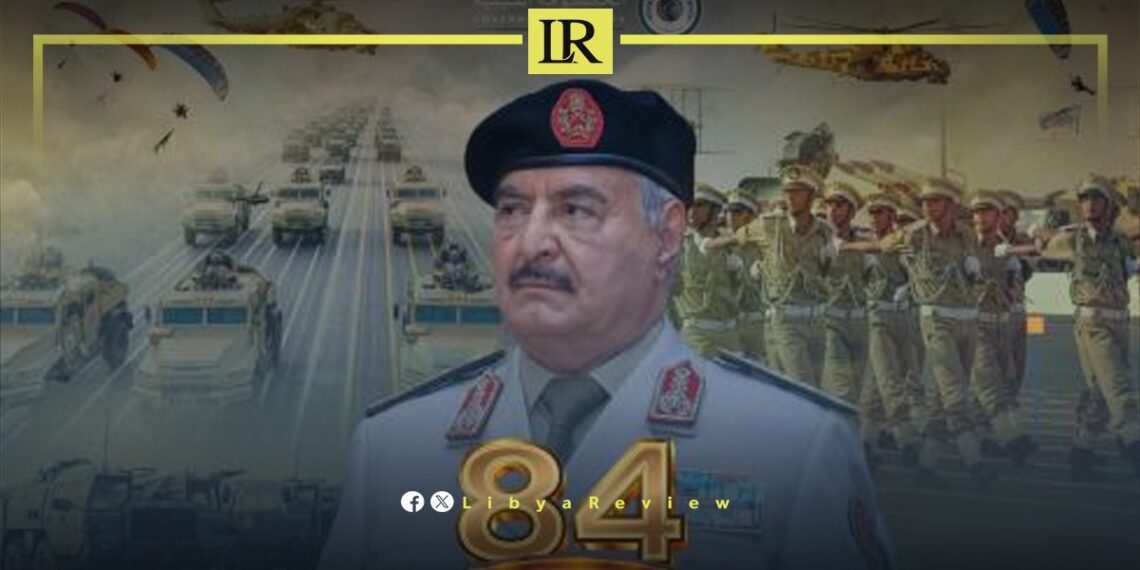On Saturday, the Parliament-designated government, headed by Prime Minister Osama Hammad, extended its heartfelt congratulations to Field Marshal Khalifa Haftar, the Commander-in-Chief of the Libyan National Army (LNA), on the occasion of the 84th anniversary of the founding of the Libyan Army.
This significant milestone is a testament to the enduring strength and legacy of Libya’s armed forces, which have played a crucial role in the nation’s history.
In its message, the government also extended congratulations to the chiefs of staff, military leaders, and all members of the armed forces, including officers, non-commissioned officers, and soldiers.
The government expressed its pride in the armed forces, emphasizing the importance of this anniversary not only for the military but also for the entire Libyan people, who continue to benefit from the army’s efforts to protect the nation.
The government paid tribute to the martyrs of the military, honoring those who sacrificed their lives in defense of Libya. The statement included prayers for the preservation of Libya, its army, and its people, highlighting the deep respect and gratitude for the military’s contributions to the nation’s security.
The Libyan Army, founded 84 years ago, has a storied history, beginning as the “Libyan Arab Force” during World War II. Initially formed under British supervision, the force played a significant role in the North African campaign. After Libya gained independence in 1951, the army became a central institution in the newly formed state, tasked with safeguarding the nation’s sovereignty and maintaining internal order.
The 84th anniversary of the Libyan Army comes at a critical time for the nation, which remains deeply divided and embroiled in conflict. Despite the challenges, the army under Haftar’s leadership continues to play a pivotal role in Libya’s political and security landscape.
Libya has been in a state of turmoil since the fall of Gaddafi in 2011, with rival governments and armed factions vying for control. The LNA, under Haftar, is aligned with the eastern-based government, while the internationally recognized Government of National Unity (GNU) operates out of Tripoli in the west. The complex political environment has led to a protracted conflict, with various foreign powers backing different factions.


